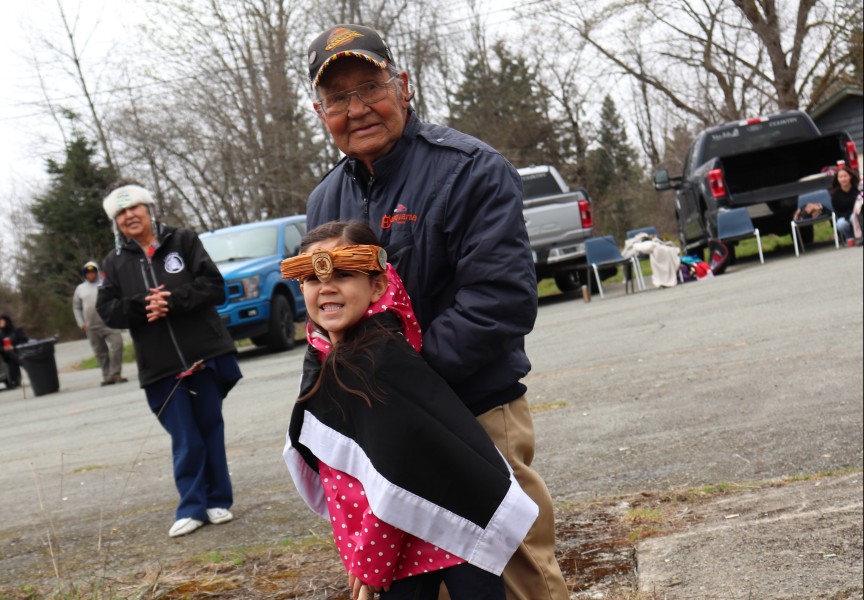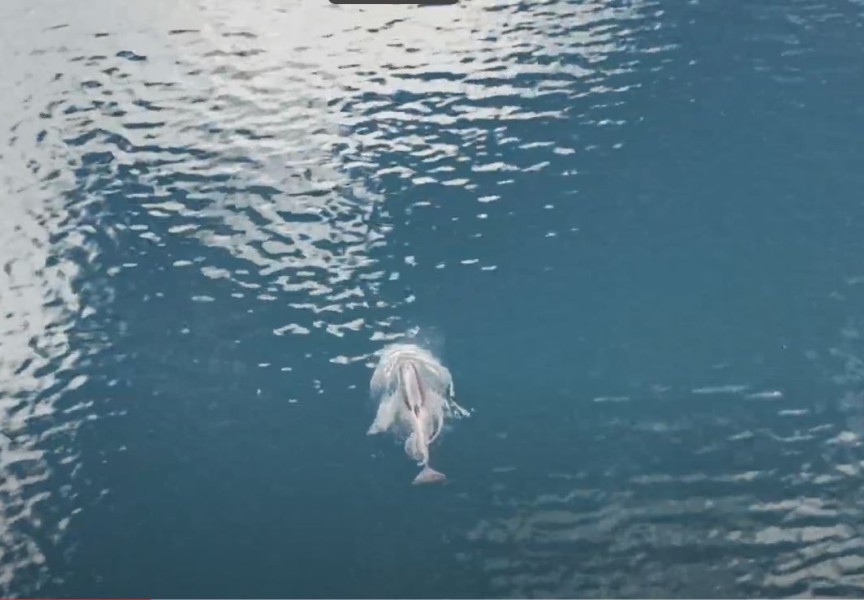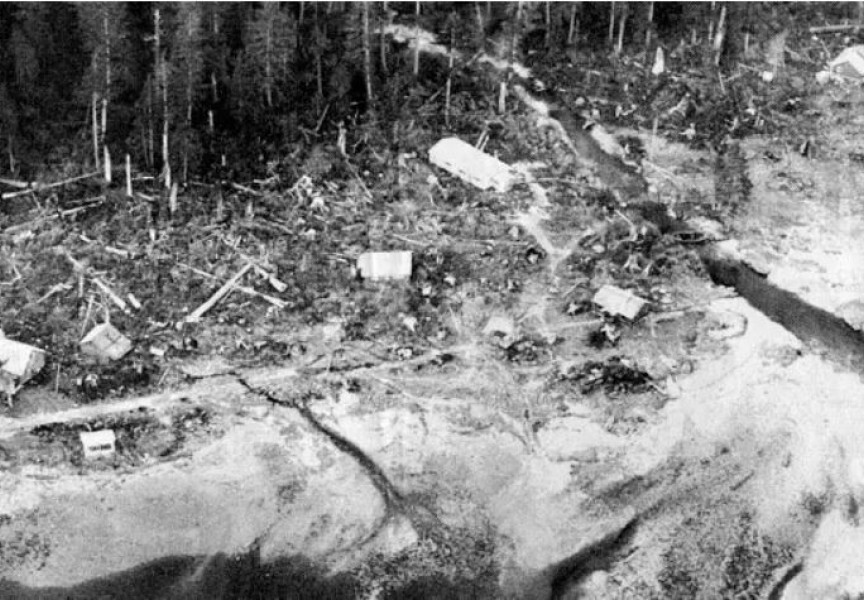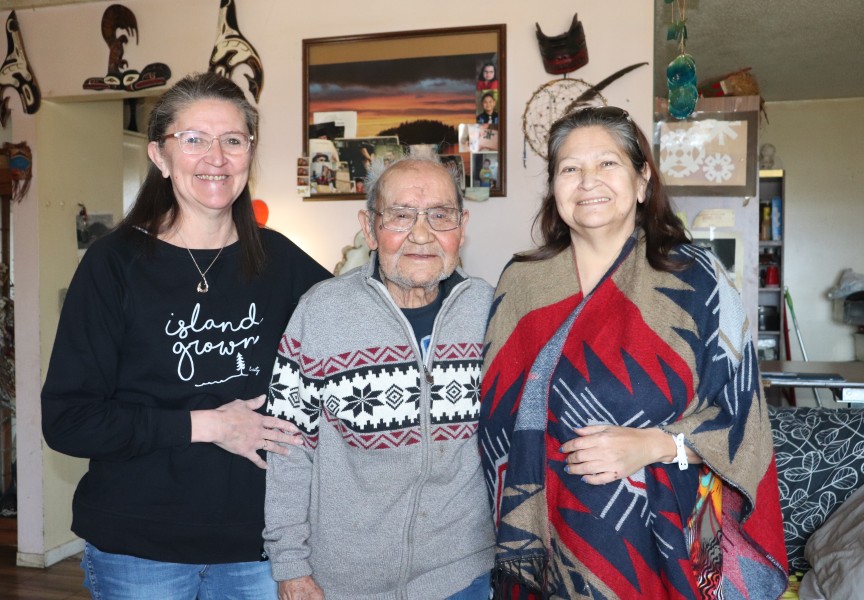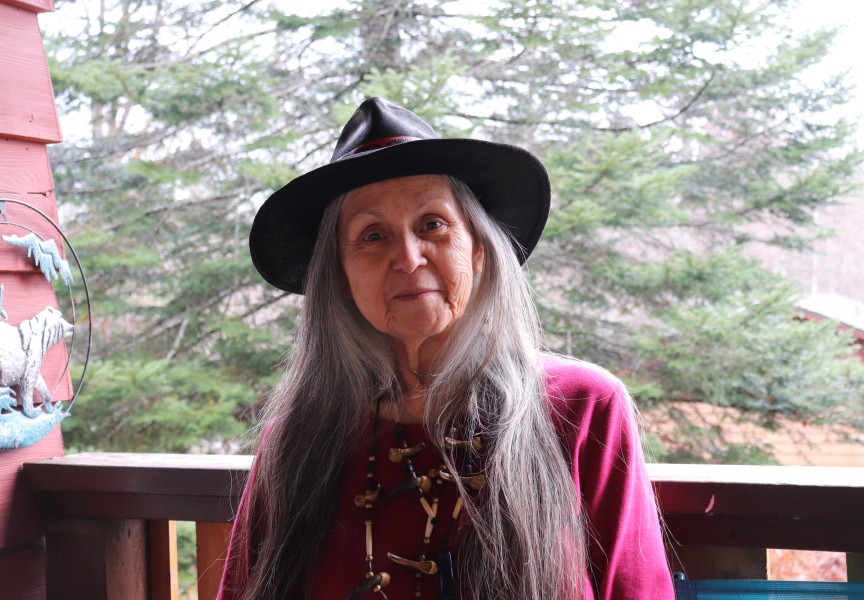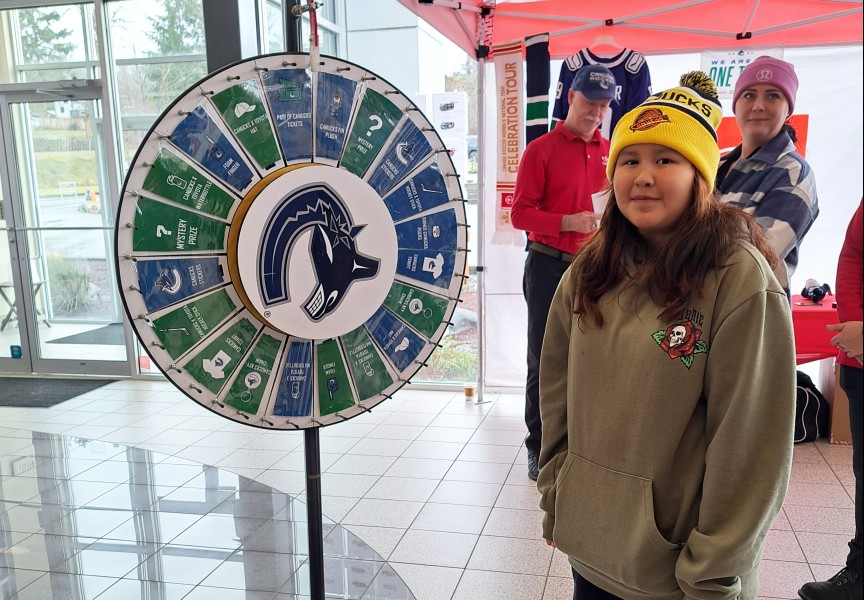Award-winning author and energy industry critic Andrew Nikiforuk will deliver a presentation at Echo Center at 7 p.m. on Feb. 25.
Titled “The Reality of LNG: Fracking, Earthquakes and Fractured Economies,” Nikiforuk paints a grim picture of how the industry affects communities in its path.
And he blasts the “obscene cheerleading” by B.C. Premier Christy Clark for LNG development, including the proposed Huu-ay-aht/Steelhead LNG project in Nuu-chah-nulth territory, when the world market for liquefied natural gas has nearly collapsed.
“B.C. gas revenues have been declining steadily, year-by-year, for the past decade, as a result of low prices and reduced royalty rates. The government has now committed to an appallingly low tax rate,” Nikiforuk told Ha-Shilth-Sa. “The business model for this truly sucks, and the people of B.C. haven’t heard a lot about it.”
Disproportionately, it’s the First Nations communities, most notably the Treaty 8 Nations in Northwestern B.C., that will bear the brunt of the environmental impacts as the energy industry assaults the subsurface with hydraulic fracturing – fracking for short – to release natural gas trapped in rock formations deep underground.
Seismologists now say with certainty that fracking is causing earthquakes and contaminating the underground water supply in regions with drilling activity.
The industry term for fracking is “brute-force technology.” Nikiforuk said the tactics used to sell the development are equally brutal at fracturing communities.
“I think what you are seeing is big companies trying to entice First Nations into a game that is lose-lose for everybody,” he said.
In the Treaty 8 Nations, the companies typically attempt to buy support from those who are willing to be bought, and to shun the rest, said Nikiforuk.
“That’s how business is done in rural Canada,” he said. Watch for more of this divide-and-conquer activity as development activity heats up in new locations like Vancouver Island, he warned.
Nikiforuk has been speaking out across the province for the past two years, and the economic picture for LNG has only gotten worse. Demand for LNG is steadily evaporating in China, Japan and South Korea, while the output of fracked gas has skyrocketed, according to the industry’s own reports.
“The so-called Oil and Gas Commission is 100 per cent funded by the industry. So the question is, who is looking after the public interest,” Nikiforuk said. “There should have been some sober second thought on this in the province, but so far, there hasn’t been.”
According to Nikiforuk, the province is actually subsidizing gas exploration and development by providing tax breaks, subsidized geoscience services and free water.
It is “almost a Soviet approach” to the development of the LNG industry, he contends.
“In B.C. alone since 2004, the shale gas industry has been subsidized to the tune of $1 billion,” he said.
Alberni-Pacific Rim MLA Scott Fraser said while this province is fortunate to have large stores of natural gas, with the potential to generate great wealth, the role of government is “to balance that with the public interest, First Nations interests and the environment.”
Fraser said he has seen first-hand the environmental and social damage that has already been inflicted in Treaty 8 traditional territories, and that damage has been spreading west to the B.C. coast and beyond.
Fraser called the Liberal government promises of LNG wealth “absurd,” and cited a deliberate campaign to tar critics as “ragtag” and the “forces of no,” words referencing a First Nations group opposed to building a LNG terminal at Lelu Island.
“[Clark] is trying to vilify those who have legitimate concerns,” Fraser said.
The Nikiforuk event has been organized by Keith and Bernadette Wyton as a private initiative with no link to any organization.
Keith Wyton said he and Bernadette have communicated with Nikiforuk on a number of issues over the years, including the (unsuccessful) BC Hydro proposal in 2000 to build a gas-fired 250-megawatt generating plant at an industrial park near the old Alberni Mall.
“Then we attended a talk he gave in Squamish, a year ago last October. He was brought in by a local citizens’ group that are opposed to the Woodfibre LNG plant.”
Wyton said with the proposed Steelhead/Huu-ay-aht First Nation LNG project now proposed, it is time to “widen the discussion.”
“So far, all of the information that has been provided to this community has been by the proponents. We believe there is a need for more due diligence.”
Nikiforuk believes that greater awareness on the part of the public could help rein in the LNG juggernautbefore it causes irreparable damage to the B.C. economy. But that means overcoming the sheer volume of promotional material flowing from the province and from the industry.
“My job as a journalist is to bring these bits and pieces together so people can see the bigger picture,” he said.
Following Nikiforuk, there will be a short presentation by Kim Mildenstein, who moved her family from the oil patch in northern Alberta to Duncan, to escape the gas exploration industry.
Bernadette Wyton said her story illustrates the divide-and-conquer tactics used by the industry to fragment communities.
“She will give a window – a more personal story – on the industry.’”
Nikiforuk’s previous books include The Tar Sands: Dirty Oil and the Future of the Continent, which won the 2009 Rachel Carson Environment Book Award. That followed Saboteurs: Weibo Ludwig’s War Against Big Oil, which won the Governor-General’s Award for Non-fiction in 2002.
Echo Community Centre is located at 4255 Wallace Street. Admission to the event is by donation ($10 is suggested).

